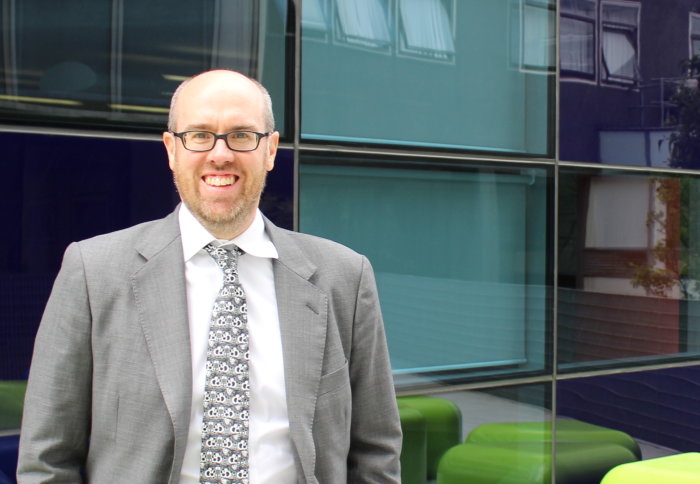Imperial researcher becomes a director of a socially responsible energy company
by Simon Levey

Q&A with Dr Jeff Hardy: What drives him to advise an innovative power and waste company that aims to serve the public good?
Dr Jeff Hardy, a Research Fellow in energy policy at the Grantham Institute – Climate Change and the Environment, one of Imperial College London's Global Institutes, has been appointed as a Non-Executive Director of Public Power Solutions.
The company, based in Swindon in Wiltshire, provides waste and energy solutions for the public sector, offering a socially responsible alternative to the United Kingdom's traditional approach of developing services that are dominated by large companies and funding institutions.
Their approach aims to utilise underused public sector resources for energy generation and storage, and provide investment opportunities for local communities and public sector organisations.
We ask Dr Hardy what this new kind of company can offer to customers, how it can improve access to cheap and reliable energy whilst reducing the greenhouse gas emissions that are causing climate change, and how it will alter how we view energy in the UK.
Describe your new position – what will you be doing?
I am one of two new Non-Executive Directors on the Board of Public Power Solutions (PPS), along with Janine Freeman who has worked at the UK Power Reserve and National Grid. Our role is to provide the company with an independent and expert viewpoint. Non-Executive Directors attend monthly Board meetings, provide strategic direction and respond to issues throughout the year.
What do PPS do and why is your role important?
PPS deliver waste and energy solutions in an economic, environmentally compatible and low-carbon way, the likes of which are essential in slowing the advance of climate change. In addition, and what made them stand out for me, is that they are also socially responsible.
They work with communities and stakeholders to deliver schemes that are in tune with local needs and circumstances, such as community-owned solar energy projects. The commercial success of such projects results in local benefits, making it an innovative and important business model.
As an academic studying energy market disruption and a former energy regulator, I help by bringing to the table the collective knowledge of a leading research institution. By questioning and challenging the assumptions and strategic directions the company are taking, I hope I can help them to succeed.
How is PPS different to the other energy and waste companies?
Typically, companies dealing with waste and energy projects are privately owned, or partly owned by shareholders, whereas PPS is wholly owned by a public body - Swindon Borough Council.
This means that, in addition to regulations requiring them to operate in a low-carbon and sustainable way, they have wider social obligations to residents and workers, such as improving the environment, and health and welfare issues.
As a consequence, they are driven to take a more holistic approach, rather than seeking only to maximize profits.
How could this business model potentially alter the future of energy and waste in the UK?
The innovation of PPS could pioneer a new approach to waste and energy in the future. For example, PPS processes all of Swindon's household waste. They developed and built the UK's first Solid Recovered Fuel plant in 2013, in which they separate valuable recyclable and reusable materials from the waste and turn the remainder into a solid recovered fuel (SRF). This has the dual benefit of avoiding the tax for sending waste to landfill sites and creating a substitute for fossil fuels.
In addition, PPS delivers projects that improve the supply of electricity, such as banks of solar power and batteries, and electric vehicle charging infrastructure. These technologies are crucial in transitioning the UK's energy system from a grid powered largely by fossil fuels to a sustainable, low-carbon energy system.
In the future, they see their energy and waste businesses integrating further, which is exciting as it could provide cost-effective and low-carbon heat and power for local residents.
What do you think energy markets will look like in ten years?
In ten years' time, I think, or perhaps hope, that the energy market in the UK will be more customer-centric. In the future, data shared consensually by consumers will be used by energy providers to offer a range of tailored services, for example you might pay a monthly fee to be assured comfort or mobility.
There may also be systems that help ordinary consumers sell low-carbon energy to each other, which would help to encourage more small-scale energy generating or storage technologies.
Most climate change models suggest the greenhouse gas emissions must peak by 2040 if global warming is to be kept in check. To ensure we have a low-carbon energy system and can meet our climate goals, it is important that changes like these happen within the next ten years.
Article text (excluding photos or graphics) © Imperial College London.
Photos and graphics subject to third party copyright used with permission or © Imperial College London.
Reporter
Simon Levey
Communications Division